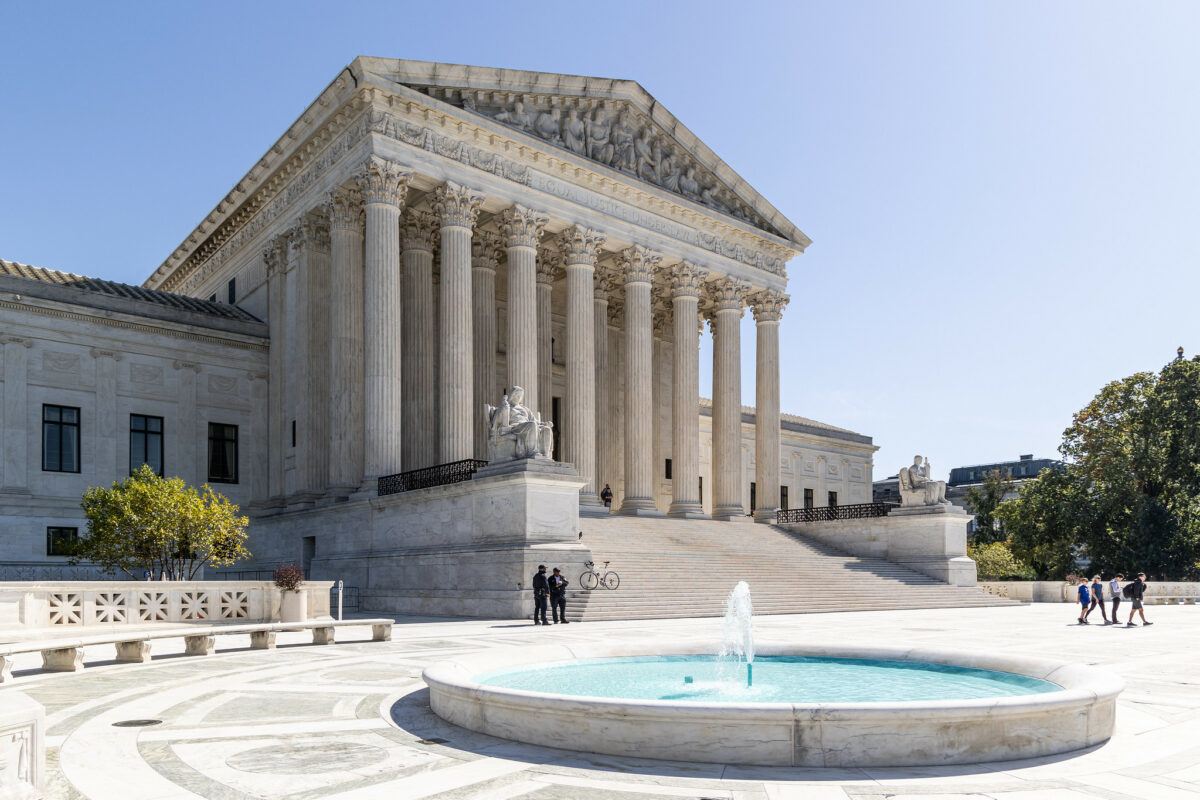Harlan Crow, Texas real estate magnate and very dear friend of Supreme Court Justice Clarence Thomas, has instructed his lawyer to tell yet another Senate committee to pound sand. Congress doesn’t have the authority to oversee the Supreme Court, the lawyer asserted in a response to the Judiciary Committee’s request for details of the millions of dollars in gifts, travel, hospitality, and real estate transactions provided to Thomas by Crow—money and perks that Thomas has failed to disclose for decades, potentially in violation of federal disclosure laws.
“After careful consideration,” Crow’s lawyer, Michael Bopp, writes, “we do not believe the Committee has the authority to investigate Mr. Crow’s personal friendship with Justice Clarence Thomas.” Of course it has that authority. That whole “checks and balances” business we all learned about in civics class—that’s what that’s about. The founders wouldn’t have allowed for the impeachment of Supreme Court justices if they didn’t intend for Congress to be able to check the court.
Crow’s lawyer isn’t just asserting that the Supreme Court is off limits, but that anyone a justice receives special favors from is off limits, too. Life’s great when you’re an untouchable billionaire in America. What the committee was asking for is Crow’s records, not Thomas’, as Judiciary Chairman Dick Durbin pointed out. “Mr. Crow’s letter relies on a separation of powers defense when Mr. Crow does not work, and has never worked, for the Supreme Court.”
It’s similar to the argument that Crow’s lawyers made to Sen. Ron Wyden, chair of the Finance Committee when he requested records disclosing all the expensive things Crow has bestowed upon Thomas and Crow’s reporting of these gifts for tax purposes, which the committee oversees. Bopp responded to Wyden with a refusal and claim that the Finance Committee doesn’t have the right to ask for that information, writing that the “Committee must have a legitimate legislative purpose for any inquiry, and the scope of the inquiry must be reasonably related to that purpose.”
Wyden slammed back, assuring Crow’s attorney that his “claim is without merit” and “ignores the Committee’s extensive history considering legislation on matters related to the gift tax, which is a backstop to both our nation’s income and estate tax regimes.” He demanded the information again, and in a statement said it was possible that the committee would have to “follow another route to compel his answers, and I’m prepared to make that happen.” In other words: a subpoena.
Durbin suggested he would consider that route as well, now that Sen. Dianne Feinstein has returned from her illness and Democrats have a majority vote on the committee again, with the power to issue subpoenas. “The Committee will respond more fully to this letter in short order,” Durbin said.
Crow clearly believes he’s not answerable to anyone, and by extension, neither should Thomas be. It’s the premise Chief Justice John Roberts has also adopted with his absolute refusal to appear before the committee to talk about the massive lapses in ethics that have come to light recently. They’re all taking the “Supreme” part of the title way too literally.
Crow insists that he’s a “private person,” “just an old guy” with a penchant for collecting Supreme Court justices to go along with his Nazi memorabilia and statues of dictators. The fact that he’s poured tons of money into right-wing causes, and recruited other millionaires and billionaires to the cause of turning the Supreme Court into the hyperpartisan political entity it is doesn’t mean that he’s not acting with the purest of motives when it comes to his friendship with Thomas.
That seems to be the prevailing attitude on the court, and that’s a massive problem for the nation when public confidence in the highest court has plunged to the lowest level in decades, in multiple surveys. Notably, most were conducted before all the revelations of Thomas’ extremely generous and secretive friend.
It is objectively dangerous for the court to be considered illegitimate by the people. It’s even more dangerous to have the court behave so badly. The government as a whole is resting on what’s a pretty flimsy piece of parchment, after all. It continues to exist as a democracy only as long as we all agree that it should. Or as long as every official who took an oath to the Constitution abides by that commitment.
The current majority on the court isn’t doing that. They won’t do that. They won’t even talk to Congress about whether or not they should be living by the most basic of ethics rules. That has to be fixed, and it has to be done by Congress and the White House. The only way to deal with the problem quickly is to expand the court. After that, further reforms can be examined, but right now, it’s the best way.
